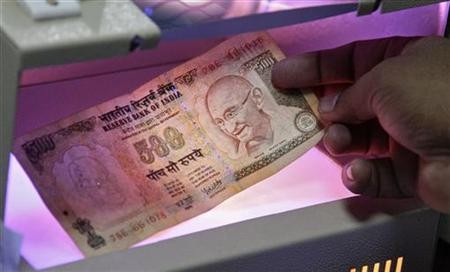
The Citigroup has reportedly said the Indian rupee may dive south further to touch 60 against the US dollar.
CNBC TV18, which aired the news Wednesday, said Citigroup's negative take on the falling currency was largely on account of a "declining confidence". The group was also reported to have said that India's four deficits -- the current account, fiscal, governance and liquidity -- have tagged the nation low in the global investor community rating.
But the Citi report also cites several other factors that have led to the rupee's fall. Among them are increased gold imports, and political inertia, which the news service reported "is seen as the single most important reason for the de-rating of the India story".
"The unfortunate part is that the problems appear self inflicted with India now seen to be specializing in scoring self goals," the Citi report said, according to CNBC.
The report was also said to have added that the Indian economy stands the risk of going well below the lowest investment grade rating unless action is taken.
On Friday, the rupee marked a new low at 54.71 to the dollar, a slight recovery from 54.91 in the afternoon trade session. Though the Reserve Bank of India is trying to help to manage volatility, the intervention was near negligible in the past few days and has reportedly said the rupee should be market-driven.
Various reports suggest that the central bank is in talks with various oil companies and is considering selling dollars directly to them, which traders say will help strengthen the rupee.
"The direct dollar window to oil firms can help the rupee recover to around 53.80 per dollar. Oil prices also have come down by 10-15%, that will also help the rupee over the next 30-60 days horizon," an unnamed dealer in FX and rates at a private bank said, according to Money Control.
At $125 dollars a barrel, a further $10 reduction will lead to a current account deficit by 10 percent.








